- Home
- Roy J. Snell
Johnny Longbow Page 7
Johnny Longbow Read online
Page 7
CHAPTER VII A LOOK BEYOND
The Corporal was up and away before dawn. Having assisted him with hisdogs, Johnny returned to the cabin.
In his sleeping bag on a rude bunk in the corner Gordon Duncan stillslept. Before the fire sat Faye Duncan. She had thrown fresh fuel on thefire. The flames were leaping up the chimney.
"I suppose you know," she said as he took a seat beside her, "thatGrandfather will accept this new mission."
"I had supposed he would."
"He doesn't want to. The finding of his long lost partner and the greengold has obsessed him for years. It is natural that he should want to goon. But he is deeply religious and, what is better, has a great heart.There are those who suffer. It is possible for him to give them aid. Dutycalls. He must go."
"But only three of us!" said Johnny. "How can we help? We may starve,ourselves. In their ignorance, superstition and great need they mayattack us."
"We have eight bows between us," the girl said quietly. "A bow weighsvery little. We always carried a good supply. Never as many as now.Providence must have directed us. We have many arrow points. Thongs,feathers, material for shafts may be had in the wilderness. A bow is aprecious thing. Its wood must be of the best and seasoned many months. Weare fortunate in having so many."
"After all, we can use but three bows at a time," Johnny said.
"Grandfather believes that there are old men among the Eskimos who havebeen archers and have not forgot. If he can arm these with our extrabows, if we can somehow ambush the caribou when they come, we may savethose starving ones yet."
Johnny looked at her in silence. His mind was in a whirl. Here was an oldman and a girl who but a few days before, as if guilty of some crime,were hiding in the brush. Yet, at this moment they were planning a longand dangerous journey far out on the tundra in the hope of saving thelives of a few half savage people.
"Queer folks," he told himself.
"So here we are," the girl went on after a moment's silence. "In an hourwe shall be on our way. Before us is the wilderness, after that a river,the land of little sticks and the silent, white tundra. We carry only ourprecious bows and arrows. It seems a foolhardy and futile undertaking.
"But think!" Her voice became vibrant with emotion. "Unless someone comesto them, men, women and cute little brown babies will starve--starve!"
She cupped her chin in her hands to stare at the fire. "I don't fear formyself," her tone was deep and solemn. "I only fear for him. He is old,though he has the heart of a boy.
"I hear him stirring," she said softly, springing to her feet. "I mustprepare breakfast. He is always impatient of delays."
"Listen," said Johnny. "I promised to go with you. I'll not turn backnow. Count me in."
The girl did not speak. She put out a hand. It was a good, strong,capable hand. Johnny gripped it heartily. And there in the dawn wassealed a compact that was to live through many a long day of wildadventure.
Noon of that day found the little party looking down upon a scene ofsurpassing beauty. This was one of those days of crystal-like clearness.From the promontory on which they now stood, the crest of the range,their vision stretched mile on mile, seeming never to end.
Spreading out a roughly drawn map, Gordon Duncan traced for Johnny thecourse they were to take. He had gotten it from Faye, who in turn had itfrom the Corporal. Here, down the ridge, they followed the blazed trail.There, where a huge black tamarack tree stood, they bent to the right. Ashort way farther, and they came to the boiling and tumultuous streamagain. Following this as best they might over rock pile and ledge,through dense forest and thicket, they would come at last to a broad,tree covered valley.
"At the entrance to that valley," the old man ended, carefully refoldinghis map, "unless we have gone wrong, we will find a rude shelter andclose beside it an Indian dugout canoe. The canoe was left there sixmonths ago, but the Corporal thinks it is still in condition."
"Here's hoping," said Johnny. "For if it is not, our journey ends there."
"And with its ending the fate of many human lives is sealed," said GordonDuncan solemnly. "It is strange that so much should depend upon solittle. But we must do our part. We are enlisted in a great cause, thewelfare of a vanishing race."
As Johnny stood there looking away to the north, where even now it seemedhe caught the gleam of a snow blanket, strange thoughts passed throughhis mind.
In a spirit almost of bravado, he had one morning slung his quiver ofarrows over his back, bound his pack together, seized his bow and walkedaway into the wilderness.
"I meant to be away a month," he told himself. "I would remain in thewilderness a month and receive no support save that which came from mybow and arrow. Well," his face twisted into a doubtful smile, "it will bea month right enough, probably two, perhaps three. And the bow and arrowmust support us, not one but three. There is no other way."
"Two months! Perhaps three!" He said the words out loud. "Why, they'llthink me dead! I must go back. It isn't treating them right. I must goback!" He was thinking of his own people.
"And yet--" As he closed his eyes to think he saw a group of little brownpeople, many groups, seated round the fast vanishing lights of crudetallow lamps. He saw the wan faces of mothers, the eyes of children thatgleamed the bright gleam of death by starvation.
"One must always think of the highest good of the greatest number." Hequoted the words of a great teacher.
"Are we ready?" said Gordon Duncan.
"We are ready," said Johnny. "Lead on."
Once more they marched on.
Two days later the girl and boy stood upon the crest of a high hill.Gordon Duncan was back some distance on the trail. Johnny would have goneback for his pack. But the aged Scotchman was still proud of hisstrength. This was the last climb for the day. Their camping place forthe night was at the foot of the hill just before them.
Here there were no trees, only rocks. Their view was not obstructed. Faraway behind hills that had turned to pure gold and mountains thatappeared to smoke with the snow driven far and wide by the wind of theirsummits, the sun was setting. Far below was the river, a golden ribbonwinding across a field of white satin.
So they stood there, the boy and the girl. Life, beautiful, gloriouslife, surged through their beings. It was inconceivable that anyone inall the world could be starving at this moment.
Spring was in the making. They did not see it. The willows by the riverwere not budding. The snow of the trail was hard as the rocks on whichthey now stood; yet spring was coming. They could feel it in their blood.
Youth, spring, life. The night before they had stood for a moment beneaththe starry heavens wondering what life could exist in those greatdistances beyond.
"Whatever it may be," Johnny told himself, "it could not be morewonderful than life here and now."
Life! The great cities with their noise and dirt, with theirartificiality, their fraud and sham, were far away. The girl that stoodat his side was real. From toes to fingertips, she was genuine. Hermackinaw was faded, her knickers frayed in spots, but the color in hercheeks, the smile on her lips, the glint of pure joy in her eye, werereal.
"Real!"
He said the word aloud. She heard and understood.
It was well for them that they enjoyed this perfect moment together, forthe days that were to come were such as require strong and beautifulmemories to lessen their pain.
Gordon Duncan came toiling up the hill. Seeing the halo of sunset glorythat had been cast about them, he said;
"It is truly wonderful. Who could believe that less than two hundredmiles from this spot men, women and little children may be starving?There are men who will tell you that nature is God. A cruel God indeedwho could furnish us such beauty and offer to them only death."
The sun sank from sight. Darkness and a sudden chill overtook them.Turning, they marched down the hill in silence.
Several nights later, with only a shelter of pol
es covered by boughs,Johnny slept again in his blankets before the fire. His was the sleep ofone whose burdens are heavy, whose trails have been long, but whose heartis light.
"The canoe is fit," was the last word of Gordon Duncan before they wentto rest. "Fit as a fiddle. To-morrow the river takes us on the way."
"But remember," said his granddaughter, "that there are rapids in theriver."
"There are never rapids in any life till we reach them," said the ruggedold Scot. "And when we do reach them we can but do our part. God will seethat all is for the best."

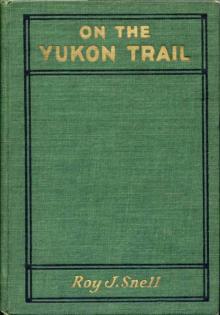 On the Yukon Trail
On the Yukon Trail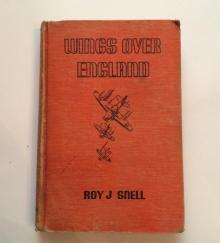 Wings over England
Wings over England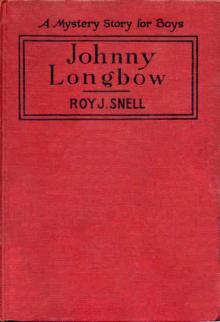 Johnny Longbow
Johnny Longbow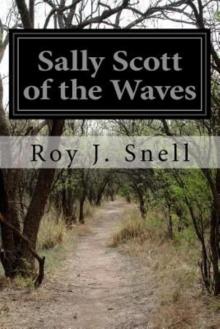 Sally Scott of the WAVES
Sally Scott of the WAVES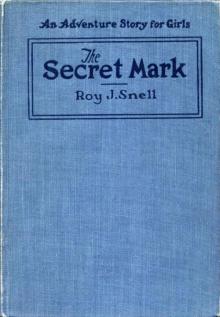 The Secret Mark
The Secret Mark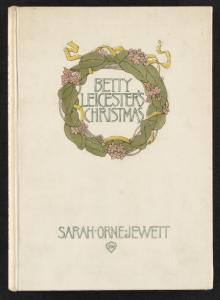 Betty Leicester's Christmas
Betty Leicester's Christmas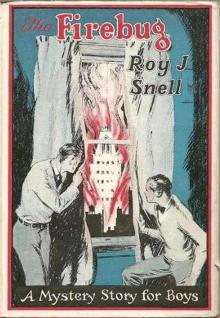 The Firebug
The Firebug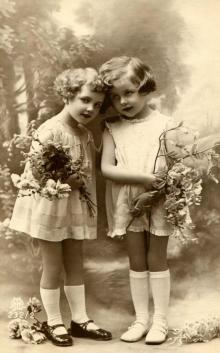 Minnie Brown; or, The Gentle Girl
Minnie Brown; or, The Gentle Girl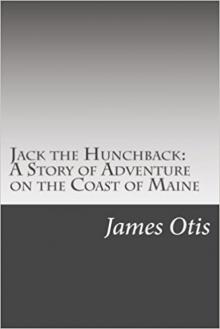 Jack the Hunchback: A Story of Adventure on the Coast of Maine
Jack the Hunchback: A Story of Adventure on the Coast of Maine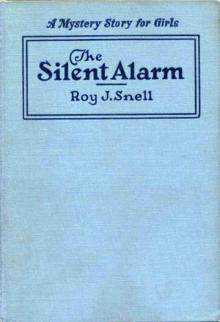 The Silent Alarm
The Silent Alarm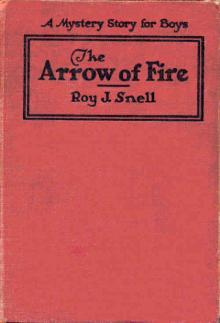 The Arrow of Fire
The Arrow of Fire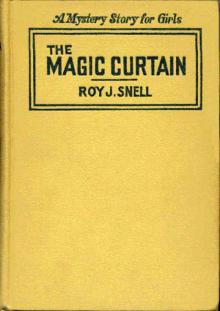 The Magic Curtain
The Magic Curtain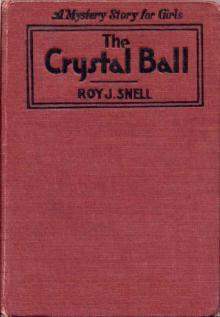 The Crystal Ball
The Crystal Ball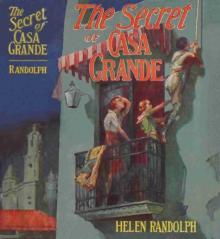 The Secret of Casa Grande
The Secret of Casa Grande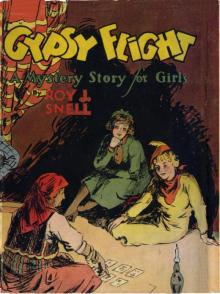 Gypsy Flight
Gypsy Flight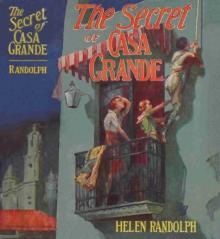 The Mystery of Carlitos
The Mystery of Carlitos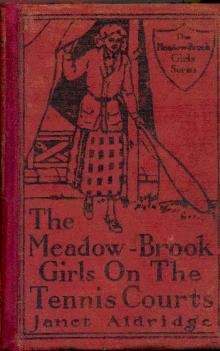 The Meadow-Brook Girls on the Tennis Courts; Or, Winning Out in the Big Tournament
The Meadow-Brook Girls on the Tennis Courts; Or, Winning Out in the Big Tournament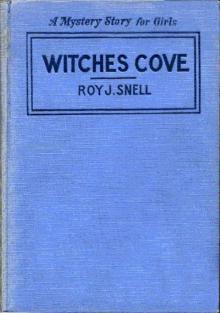 Witches Cove
Witches Cove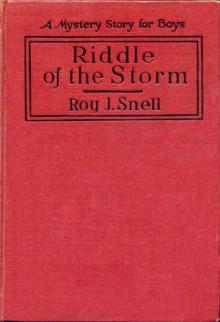 Riddle of the Storm
Riddle of the Storm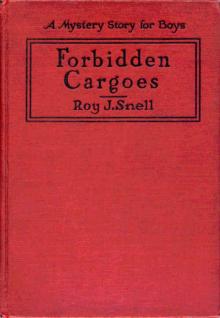 Forbidden Cargoes
Forbidden Cargoes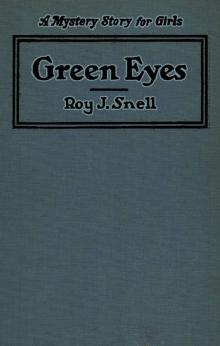 Green Eyes
Green Eyes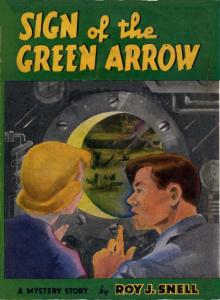 Sign of the Green Arrow
Sign of the Green Arrow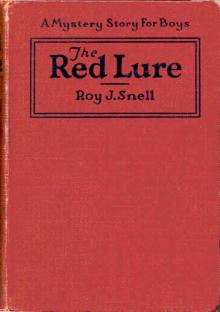 The Red Lure
The Red Lure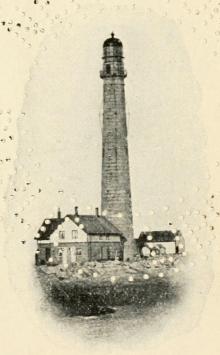 The Light Keepers: A Story of the United States Light-house Service
The Light Keepers: A Story of the United States Light-house Service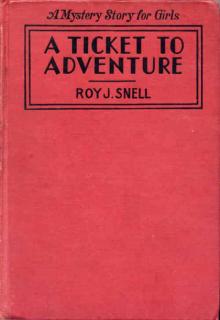 A Ticket to Adventure
A Ticket to Adventure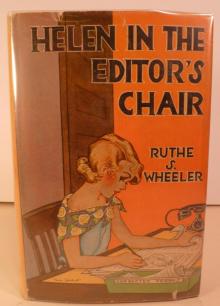 Helen in the Editor's Chair
Helen in the Editor's Chair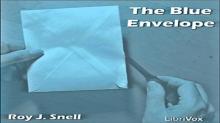 Blue Envelope
Blue Envelope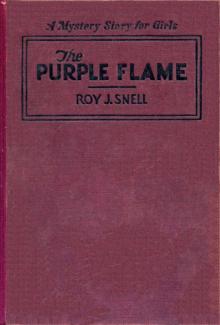 The Purple Flame
The Purple Flame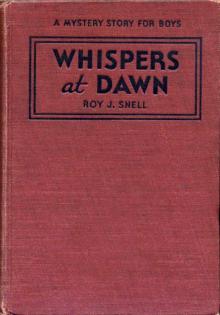 Whispers at Dawn; Or, The Eye
Whispers at Dawn; Or, The Eye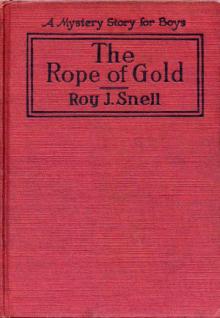 The Rope of Gold
The Rope of Gold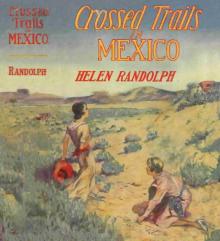 Crossed Trails in Mexico
Crossed Trails in Mexico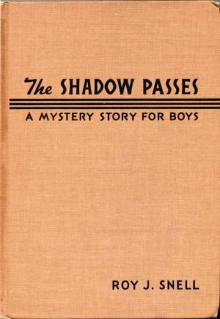 The Shadow Passes
The Shadow Passes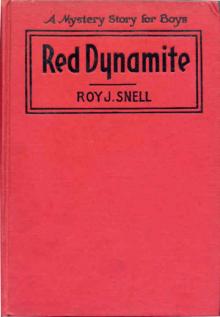 Red Dynamite
Red Dynamite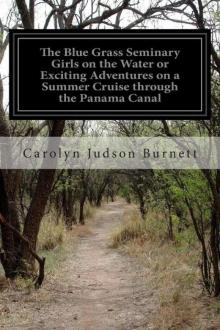 Blue Grass Seminary Girls on the Water
Blue Grass Seminary Girls on the Water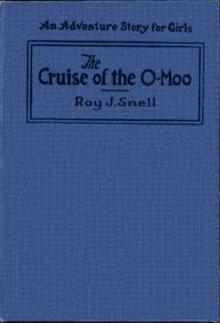 The Cruise of the O Moo
The Cruise of the O Moo